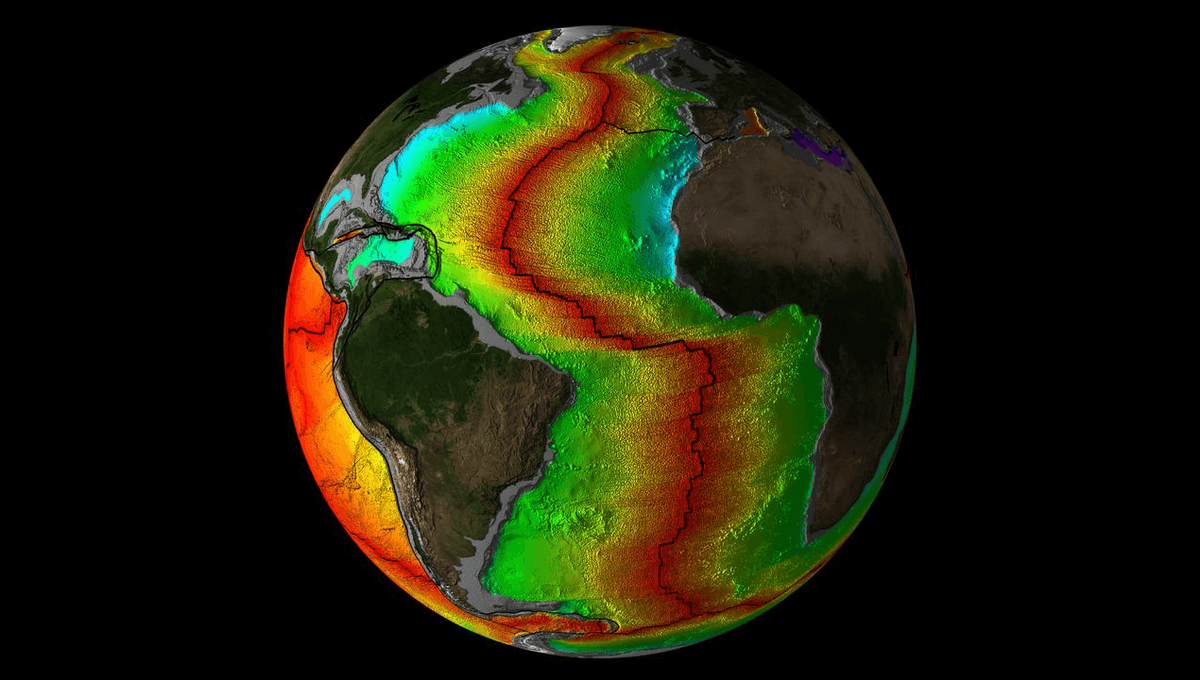
The dance of the continents could be about to take a new turn, with the Atlantic moving from a growth to a contraction phase. This, some geologists predict, will be caused by the breaking of tectonic plates, causing lines of volcanoes along the coastlines of Africa and Iberia.
Over billions of years, the Earth’s continents have repeatedly come together and come apart. There is no doubt this will happen again; what is uncertain is the timing and whether most continents will collect at the North Pole or the equator.
Dr João Duarte of the University of Lisbon leads a team that thinks they can predict both, at least if you offer a few tens of millions of years of flexibility on the latter question.
The origins of the Atlantic date back around 180 million years when a rift split Pangea and the Americas sailed west and Asia went east. In the process, subduction zones have formed around the margin of the Pacific as each continent has forced the edges of oceanic plates into the mantle. This does not happen easily, and these zones have given rise to the Pacific Ring of Fire, home to most of the world’s active volcanoes and largest Earthquakes.
If the process is to reverse and the Atlantic starts to close, new subduction zones would have to form along the opposite coastlines. That’s not an easy process. Subduction zones require tectonic plates to bend and sometimes break. The process can be self-reinforcing once it gets started, but kicking it off is hard. “The aged oceanic lithosphere is thick and strong, making it resistant to breaking and bending,” Duarte and co-authors write in a new paper.
“The only force that can start a subduction zone is another subduction zone (if you exclude meteoritic impacts and super mantle plumes),” Duarte told IFLScience. He and his colleagues argue the seed for future subduction zones lies in the western Mediterranean, where an ancient zone brought Africa and Europe towards each other.
If Duarte and colleagues’ modeling is correct, the largely inactive subduction zone beneath the Strait of Gibraltar will invade the Atlantic. This will start the process of pulling the Atlantic oceanic plate beneath Africa and Europe, causing the ocean to close.
“Subduction invasion is inherently a three-dimensional process that requires advanced modeling tools and supercomputers that were not available a few years ago. We can now simulate the formation of the Gibraltar Arc with great detail and also how it may evolve in the deep future,” Duarte said in a statement.
The Gibraltar subduction zone was once very active, as Africa pushed north, but this has faded in the last few million years, leading models of the tectonic future to ignore it. However, Duarte concludes you can’t keep a good subduction zone down forever, predicting in around 20 million years the newly extended zone will revive.
One side of an ocean can’t form a ring. The Atlantic would also be unlikely to close if this was the only future subduction zone. However, things could change in the Western Atlantic even sooner.
“There are two other subduction zones on the other side of the Atlantic,” Duarte said in the statement. “The Lesser Antilles in the Caribbean and the Scotia Arc, near Antarctica. However, these subduction zones invaded the Atlantic several million years ago. Studying Gibraltar is an invaluable opportunity because it allows observing the process in the early stages when it is just happening.”
“The subductions formed [in the west Atlantic] around 50 million years ago and have been slowly moving,” Duarte told IFLScience. “For them to win over the opening of the Atlantic they will have to spread, and eventually force the Mid-Atlantic ridge to subduct. This may take more than 20 million years.”
It might be assumed that if the Atlantic is closing it means the Pacific Ocean will open even wider. However, “Everything seems to suggest that the Pacific will close…,” Duarte told IFLScience. “This was something that troubled me for a while… The solution is that another ocean has to open, and that may well be the Indian, or even an ocean that may split Africa and Eurasia.”
Duarte thinks the opening of the East African Rift, which will eventually create a new small continent may be the start of this, along with rifts within Asia.
The study is published in Geology.
Source Link: The Atlantic Ocean Could Be Developing Its Own "Ring Of Fire"